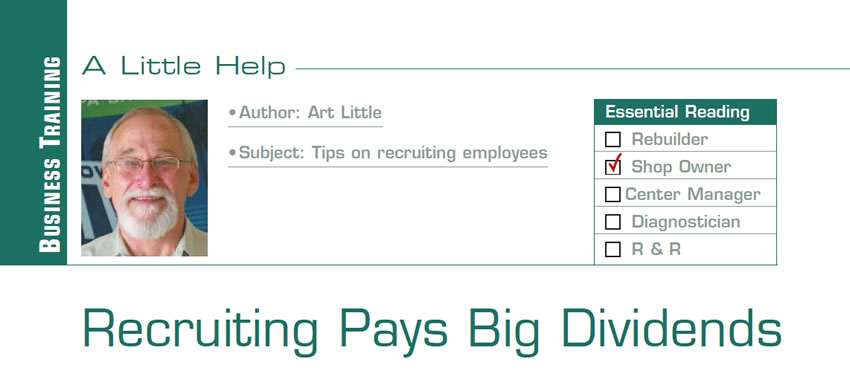Lead Status
A transmission-shop manager will make a minimum of 100 important decisions a week. Let that settle in for a moment. Now, understand that these decisions will determine the shop’s financial success. Every wrong decision he makes has a consequence. Nowadays each mistake can cost upward of $2,000 – makes it hard for a shop owner to sleep at night if you are the worrying type. However, the good news is, there are time-tested policies and procedures that help keep production mistakes to a minimum.
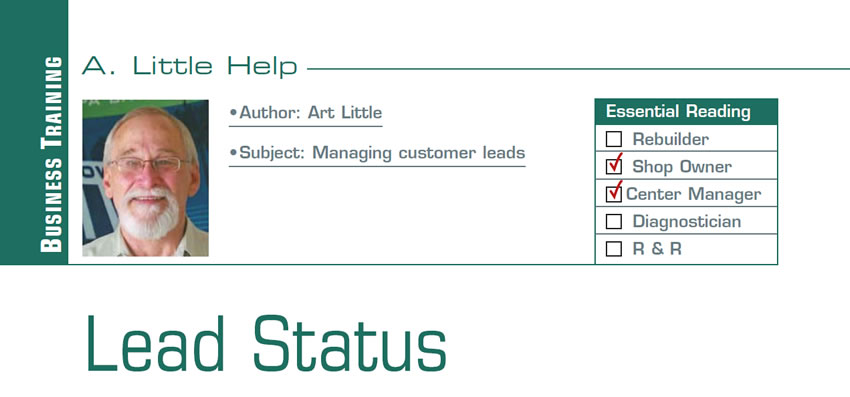
Motivating Managers
If you are reading this article and your manager is upfront burning the shop down, keep your seat. I started out as a manager, but most of my career I made a living by managing transmission-shop managers. They are a group who require from time to time, shall we say, a little motivation. There are ways that I know of to do that and I am willing to share.
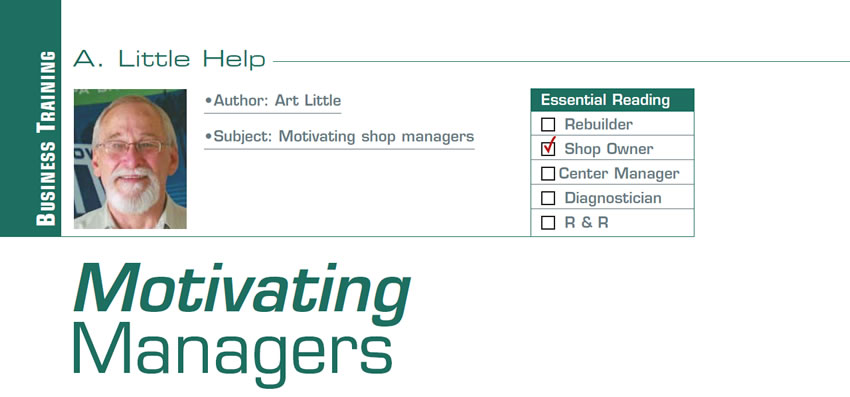
Last Impressions
The last impression your customer has of you is as important as, if not more important than, the first impression. Many times we get busy and take short cuts we know we shouldn’t. Car delivery is an easy one to neglect. You talk with any sales manager and he will tell you that the last step of any sale is the reassurance step. In this step, you reassure the customer that he has made the right decision about buying from you and ask for referrals. Car delivery is the reassurance step in the sale of a transmission repair. Proper car-delivery procedure accomplishes several things, but reassurance is the most important.
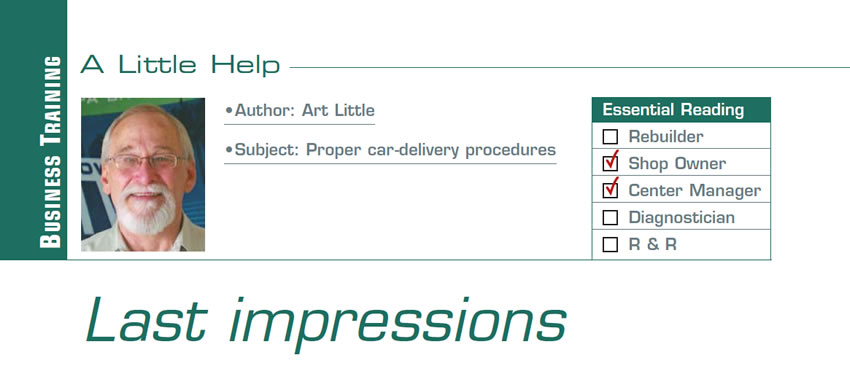
Productivity and Profitability
Time management and planning are critical to getting the one or two extra jobs a week. Is the manager making good decisions? Is he working on jobs that will not be picked up this week when money jobs are sitting on the bench? Are parts being ordered as soon as the sale is made so that waiting on parts is not slowing production? Every production mistake delays cash collection.
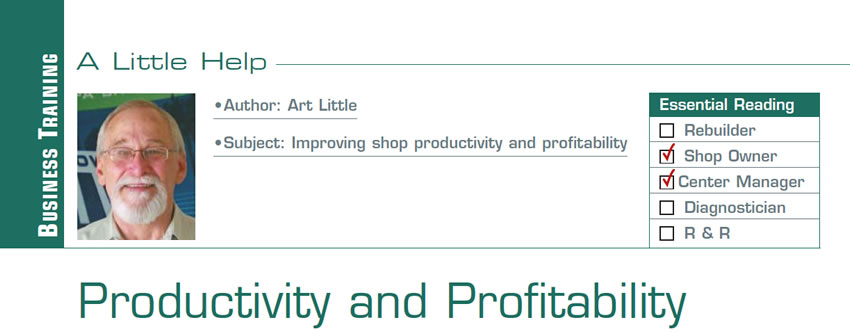
Attitudes and Altitudes
Have you ever considered that maybe your attitude as the shop owner is the root cause of the bad attitude your customers have when they come in, like this customer? Let me explain what I am talking about. After the customer calmed down and left, the manager showed me a folder with restraining orders the owner had filed against previous unruly customers. I had never seen that before. That was a new one on me. I went to the owner and asked the owner what he was going to do about this customer and he said did not know. He just knew he was not going to give him his money back.
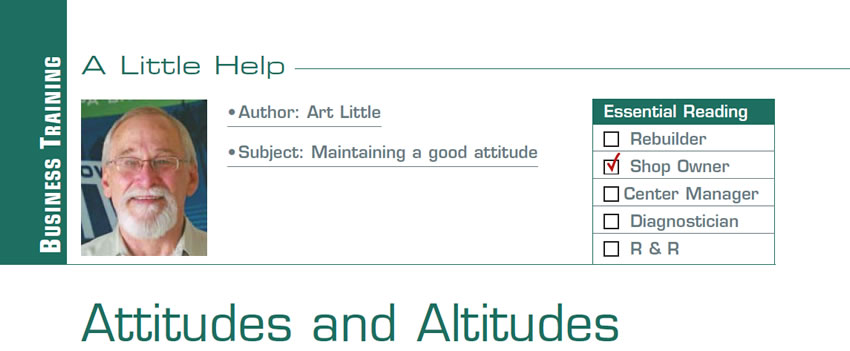
Back to Basics
I know this much: Managers who sell on the phone make less money than managers who contact-sell. I have tried it both ways. When I call on the phone, the customer is sitting in his environment and all he has to do is hang up and I am finished. He may be distracted and not able to focus on my service recommendation. He may not be able to take personal calls at work. Bottom line, the customer has control of me and can easily postpone his decision. I don’t know about you, but when it is my money on the line, I like to be in control of the transaction. If you can do it over the phone, my hat is off to you. I just don’t get that warm and fuzzy feeling over the phone.
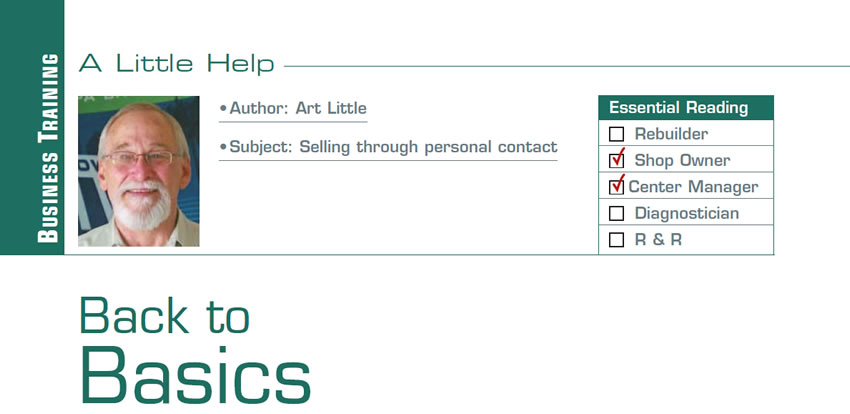
The Future of Transmission Specialty Shops
The economy went south, so you tried to figure out what to do. Other shops were doing general repairs. You knew you needed to generate more money so you started selling general repairs too. But was that the right decision for your shop?
It seems like the logical thing to do, but my experiences in a transmission shop tell me not to do general repairs. Too many bad things can happen. I personally do not want to open up that can of worms.
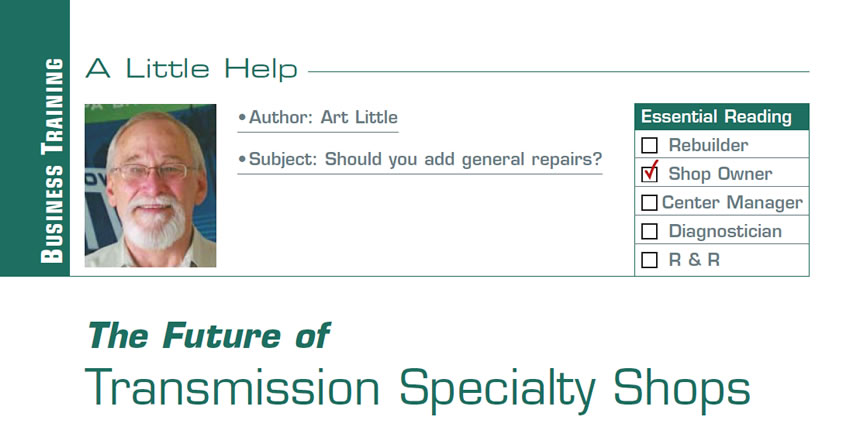
No Tech to High Tech
The source of the confusion seems to come when shop owners mix how and where we access our business tools used to manage our transmission shops. For example, If your production board is at the shop, unless you call and ask you have to go to the shop to see what is going on with production. If your lead sheet is at the shop, you have to go to the shop to view it.
If your parts invoices for the week are in a stack of papers in the back office, if your cash collected for the week is on a computer program at the shop, if your sales records are at the accountant’s office, if your production reports are in your car, if your vendor list is on a piece of paper taped to the wall at the shop and your checkbook in is in your desk at home, you “might” be caught up in the confusion I am talking about.
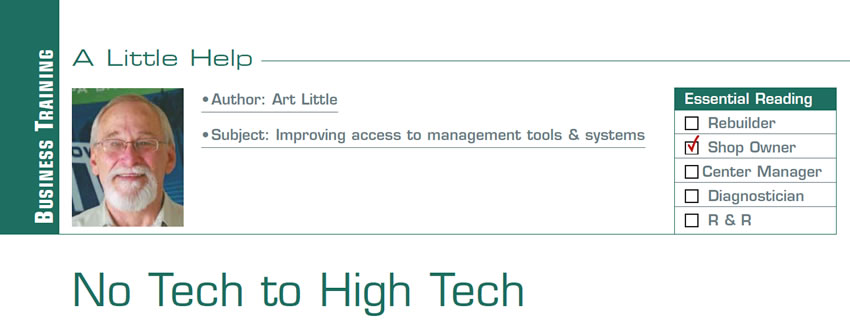
Recruiting Pays Big Dividends
Most transmission-shop owners would rather wear a dress than recruit. Who can blame you? The numbers are stacked against you as a recruiter. I get it. But I also know it’s part of your responsibility as a shop owner, and if you are going to be successful you need to keep your recruiting skills sharp. The fact is, if you hire the right people you can stop working for the numbers and have the numbers start working for you. I will show you in this article how that works.
